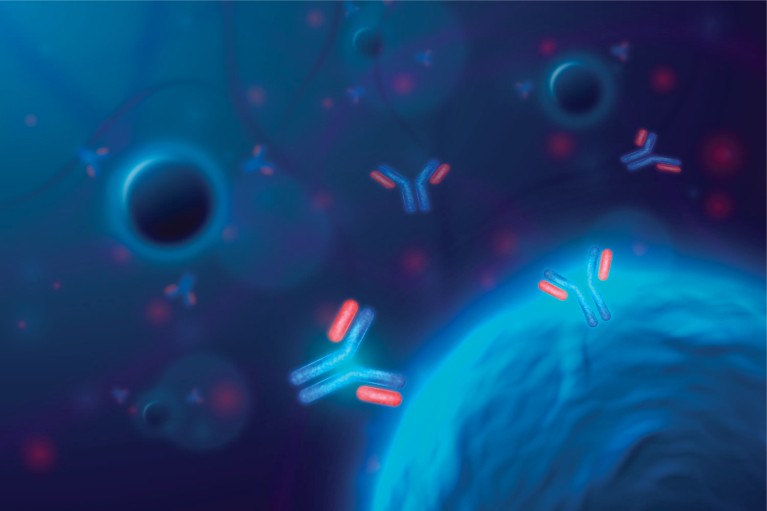It can be a challenging, long and expensive journey from biologics discovery, through early development, to technology transfer for manufacturing scale-up. No single pathway suits every program, and drug developers often need to choose from a menu of highly specialized services to suit their needs.
California-based Aragen Bioscience has spent almost 30 years helping its partners develop monoclonal antibodies (mAbs) and an increasingly diverse panel of biologics such as bispecifics, hormones, enzymes, nanoparticle vaccines and virus particles. The biologics services subsidiary of Aragen Life Sciences has evolved along with the biologics market, helping it remain at the center of drug development and as a key enabler of multiple marketed products. “Today, almost half of new drug approvals are biologics,” said Subodh Deshmukh, Aragen Bioscience’s CEO. “The market now includes an array of modalities, each with different requirements and challenges for cell-line platforms and process development to enable manufacturing.”
Diverse cell-line development
Aragen Bioscience has established specialized Chinese hamster ovary (CHO) cell lines to support multiple types of biologics across this diverse market. Aragen Bioscience’s CHO-DG44 has a track-record of stability and high productivity, with an extensive regulatory history. “It’s an extremely low-risk platform that, in combination with our decades of experience and process improvements, is most suitable for the advancement of biosimilars,” said Lakshman Rajagopalan, Aragen Bioscience’s Senior VP, Biologics Discovery and Early Development. “Our consistent ability to deliver high titers and quality has resulted in over 200 cell-line development (CLD) collaborations and four marketed products. Our CHO-DG44 platform is also provided free of any costly milestone or royalty payments.” Aragen Bioscience has also recently launched its CHO-glutamine synthetase (GS) CLD platform paired with a proprietary GS-expression vector, well-suited to produce difficult-to-express proteins.
RapTr2022, Aragen Bioscience’s CLD-services platform, includes the proven CHO-DG44 and CHO-GS cell lines and proprietary vector combinations with an innovative clone-selection process (Fig. 1). A key feature of RapTr2022 is the utilization of a single-cell printer from CYTENA and a Solentim imager to establish cell-bank clonality. “Our proprietary expression vectors, all developed in house, are critical drivers of success for our CLD platforms,” said Deshmukh. “These, along with our ability to assess quality through a wide range of analytical capabilities, has made us a preferred partner for our numerous global clients.”

Fig. 1 | RapTr2022. Aragen’s proven CHO-DG44 and CHO-GS cell lines and proprietary vector combinations with an innovative clone selection process enable rapid and robust production of complex mAbs and proteins
The company’s approach to CLD allows it to produce high titers for both CHO-DG44 and CHO-GS cells, with aggressive timelines, through process efficiencies. “We typically complete the CLD process in under five months, without compromising quality,” said Deshmukh.
Aragen Bioscience can also evaluate titer and quality in multiple CHO platforms simultaneously, to rapidly identify those that are best for advancement. Delivering these competencies hinges on flexibly meeting biopharma companies’ varying needs as they develop their new biological entities or biosimilars. “That takes more than a service provider,” said Deshmukh. “It requires a true CMC [chemistry, manufacturing and controls] partner, one that offers the breadth of capabilities needed from making initial protein samples at discovery all the way through to successful technology transfer for manufacturing, and every step in between.” He added that Aragen Bioscience also works with diagnostics and reagent companies and with developers of therapeutics for companion animals.
Accelerating process development
Aragen Bioscience recently expanded its process-development capabilities with the acquisition of an advanced microscale bioreactor system. The bioreactor platform enables high-throughput screening and optimization of critical process parameters such as temperature, pH, dissolved oxygen and nutrient supplementation, significantly reducing the time and cost associated with upstream process development. By applying an overlapping, parallel approach, Aragen Bioscience can advance a client project from transfection through CLD, single-cell cloning, process development, stability assessment and bioreactor evaluation, within a span of eight months. Project managers act as single points-of-contact, managing all logistics and ensuring timely completion of project milestones.
Aragen Bioscience’s goal is to accelerate process-development timelines to investigational new drug (IND) application submission. “Many of the biologics developers that we have supported continue to use our cell lines in bioproduction for their marketed therapies,” Deshmukh noted. “Our team’s scientific reputation among biotechs and small biopharmas speaks for itself. We are known as the one-stop shop for affordable bioproduction of high-quality titers, and as an accommodating partner that can fix problems that have arisen elsewhere. We are geared entirely for our partners’ success.”
Source: Nature Research